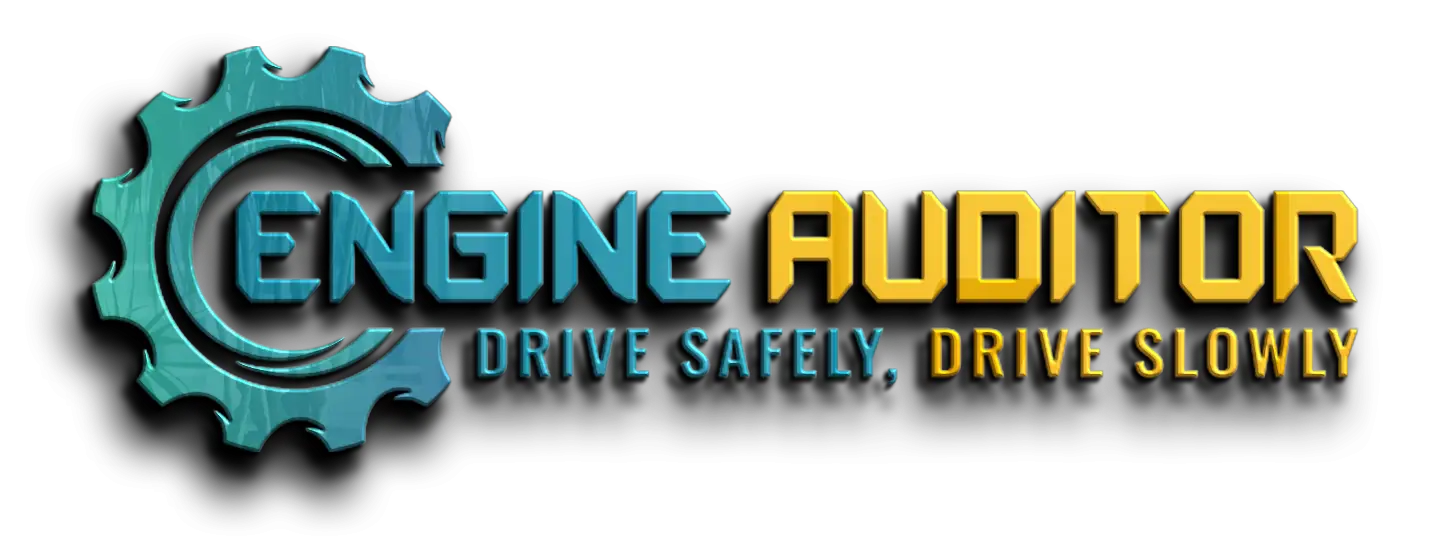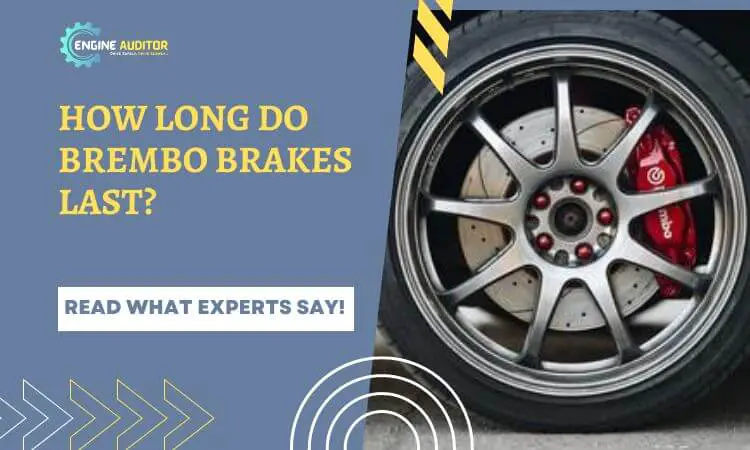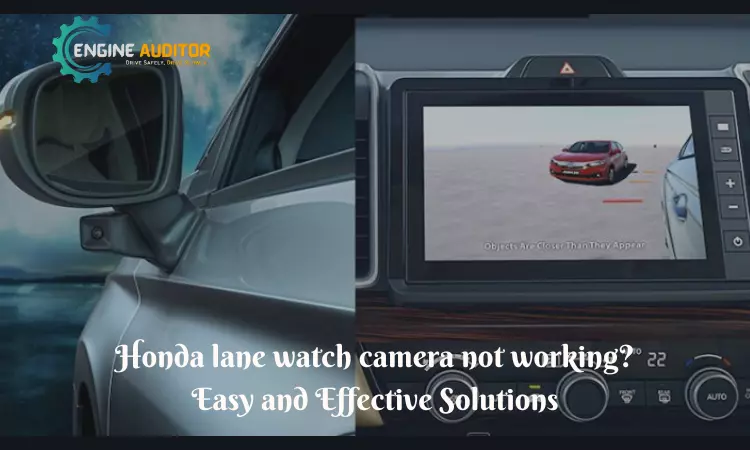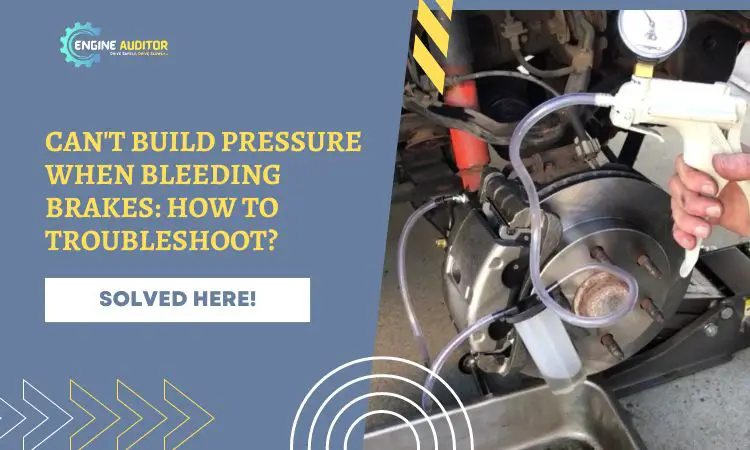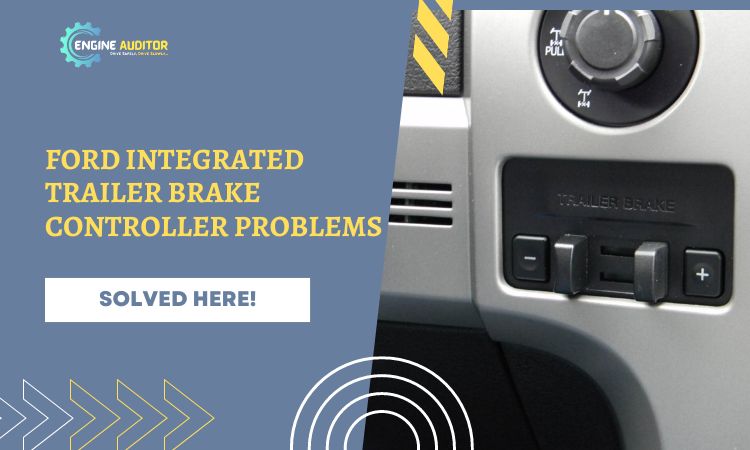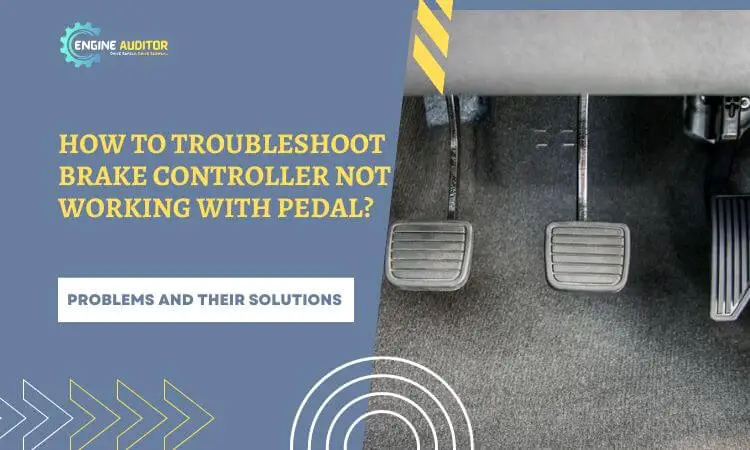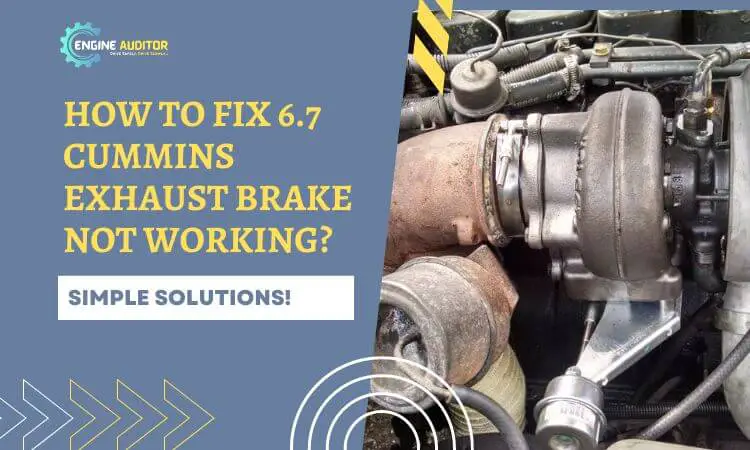It is a must for a safe drive that your vehicle’s front brake calipers work finely. Sometimes it may happen that the front brake calipers are not working properly. If you face such problems in your life, then you know how important it is to fix the issue properly. But do you really know how to fix both front brake calipers not releasing?
The brake caliper problem can be easily resolved once you identify the cause. Check for the brake pads, type of transmission fluid, brake piston, brake hose, caliper alignment, and brake discs. Fix the problem according after identifying the cause.
After learning the causes and solutions, you can quickly fix the problem. Let’s read in detail to learn how to fix the brake calipers, not releasing problems.
You may also like: How long do brembo brakes last
What causes brake calipers to not release?
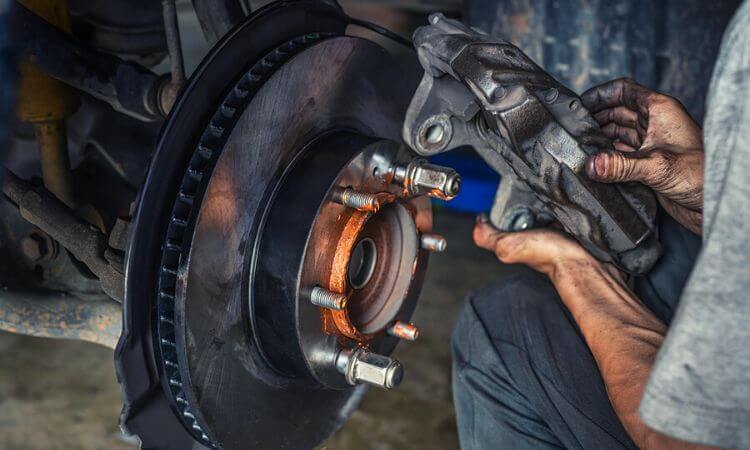
You may find faulty front brake calipers for several reasons. I have listed some major points in the following sections.
- Stick brake pads
- Wrong fluid
- Problem with the brakes piston
- The brakes hose is worn out
- Misalignment of Calipers
- Bent brake discs
How to fix both front brake calipers not releasing?
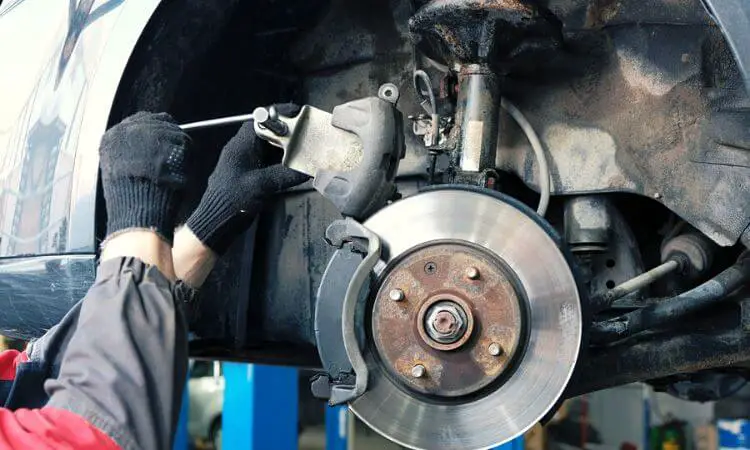
It will be easy to fix the problem if you try to solve it after identifying the cause. Here I will provide you with the problems and their solutions. It may help you to fix problems even with basic skills.
Problem 1: Stick Brake Pads
A stuck brake pad can be the culprit for the brake caliper not releasing fully. Over time dust or dirt accumulate around the piston and guide pins that cause brake pads to stick. It can cause moisture or corrosion, which jams the caliper.
Because of such dirt, brake fluid also becomes dirt, and the overall lubrication process becomes slow. So it is essential to clean the brake calipers and nearby parts to remove the calipers stick problem.
Solution 1:
First, arrange for a wire brush and grease. You can use any of the available wire brushes; if you do not have the brush, you can buy it locally.
For the grease, I recommend Ultra Supreme Grease by Schaeffer Manufacturing. It is long-lasting and comes with the ability to withstand up to 50000 psi pressure. Its performance is excellent in all temperature ranges.
- Remove the dust or dirt from the brake caliper. Ensure you have covered all the attached hardware
- Then lubricate the metal parts to rubber for better friction
- Lubricate the brackets to guide and guides to pads
- Avoid lubricating the points, such as the backing plate
- Clean the brake pads and then the rotors
Problem 2: Wrong Fluid
If you have carelessly used the wrong fluid for the brake, it may create several issues, including the brake calipers not working. You may need to flush the transmission fluid to rectify the mistake. Otherwise, your entire transmission may damage.
Solution 2:
Flushing the transmission fluid is easy but only try if you are confident. Follow below easy steps to flush the wrong transmission fluid.
- Park your vehicle on a smooth surface
- Unscrew the bolts and nuts to remove the fluid pan cover
- Remove the cover and then remove the fluid stopper cap
- Wait until the entire transmission fluid drains into the pan
- Once fluid transmission stops draining, take a flush pump to suck out the remaining fluid transmission
- I recommend OEMTOOLS 2498 fluid transmission sucking pump. It is affordable and easy to use; you can suck all the remaining fluid transmission manually.
- Once all the fluid transmission is sucked, refill the pan with the correct transmission fluid.
Problem 3: Problem with Brake Piston
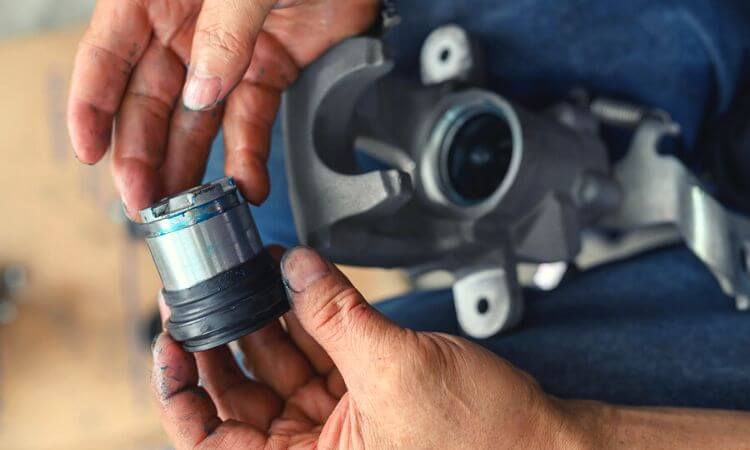
Over time brake pistons may become problematic due to swelling or corrosion. Ultimately brake pistons will stick.
It may cause a brake fluid leak, reducing the fluid amount and increasing friction. After a few days of use, your brake caliper may stop working. You will only be able to get back once you remove the problem.
Solution 3:
- Park your car in the garage
- Switch off the car and then open the car hood
- Go to the brake system and remove the brake pads. You can remove it easily by unscrewing the screws. No need to remove all brake pads; remove which are attached to the brake caliper pistons.
- Then remove the caliper piston.
- Take a clean cloth and clean the piston and brake caliper
- Check the pistons; if the pistons are problematic, replace them with a new one
- For piston replacement, I recommend brake piston by Carlson Quality. Their pistons come with excellent load-bearing capacity and perform well with most vehicles.
- Install the new piston and put back the brake pads.
Problem 4: Brake Hose is Worn Out
A brake hose is an essential part of the brake system; if the brake hose is worn out, you may experience a brake booster not releasing pressure problem. It happens if you keep the hose the same for a long time or use a low-quality hose.
Over time hose start damaging internally and mixes with the transmission fluid. It also causes leakage, which decreases the transmission fluid amount. Ultimately friction increases and the brake caliper can stick.
Solution 4:
- There is no other solution except changing the brake hose. But first, ensure the brake hose is problematic or not.
- You can confirm it by spinning the brake pedal. Turn the brake padel multiple times with your hands and check the rotations.
- If you experience the tires being hard to spin, you may have a problem with the brake padel.
- Open the crack bleeder and check the hose.
- If the hose is damaged, replace it with a new hose.
Problem 5: Misalignment of Caliper
The caliper’s alignment is important for brake system performance. You must have correct alignment; otherwise, you may experience the caliper may not working. It can happen for several causes, so there is no need to be worried.
Over time misalignment problems can occur; if you do not fix it timely, it will increase. A severe misalignment may stick to the brake caliper.
You may experience other issues, such as overheating or unwanted sounds. So immediately fix for smooth performance of brake system.
Solution 5:
- First, check the level by pulling the brake lever. Judge how tight or loose the brake calipers
- If the brake caliper is loose, tighten it; tighten the caliper you will need to lose it.
- Do not over-tighten or lose it should be moderate, then loosen the bolt on your brake caliper for adjustment.
- Pull or release the brake cable through your brake caliper for correct alignment.
- Once corrected, the alignment is tightened, and the caliper bolt is back
- Test the brake pads and ensure the alignment problem is resolved
Problem 6: Bent Brake Discs
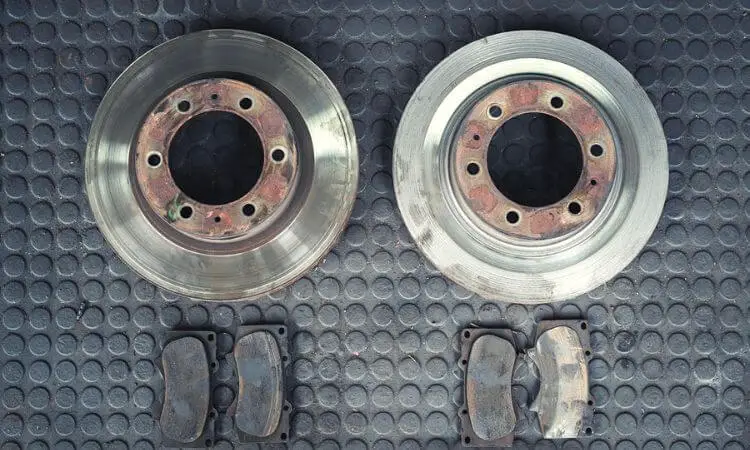
Brake discs can be a culprit for the brake caliper not working. Brake discs are attached to the master cylinder; if discs are bent, they do not work correctly. Because of their inconsistent performance master cylinder could not work.
The major cause of the bending of the brake discs is the dirty or low transmission fluid. It decreases the lubrication, and ultimately, friction increases. Because of too much friction, brake discs cannot handle the pressure and bent.
Solution 6:
It is simple to fix the bent brake disc problem. If you have bent brake discs, replace them with recommended brake discs. But remember to check the transmission fluid level. If it is low, refill the transmission fluid; otherwise, the problem will remain.
- Park your vehicle on a leveled surface if you do not have a garage and allow it to cool down
- Now raise the front side of your vehicle with a jack
- Unscrew the tire screws and remove them by pulling them outside
- Then open the brake fluid reservoir cap to access the brake caliper
- Remove the brake calipers by detaching them from the piston and setting them aside
- Now remove the brake discs and reinstall the new brake discs
- Then tighten the piston and reinstall everything as before
- Test the brake caliper performance by riding your vehicle for at least one kilometer
Frequently Asked Questions (FAQs):
Why Did the Brakes Size After Sitting Overnight?
If you experience brakes seizing after sitting overnight, you may have a problem with drum brake shoes.
The faulty drum brake shoes catching on the backing plate cause brake seizing problems. But if you see all of the brakes are seized, then check the master cylinder. A bad master cylinder may make all brakes seize.
What Would Cause Brake Calipers Not to Release?
The most common cause for brake calipers not to release is seized brake pads or calipers. It happens due to poor lubrication or rusting.
You can easily identify it because you will notice your vehicle will pull on one side when you press the brakes.
What Causes a New Brake Caliper Not to Release?
The most common cause for a brand new caliper is not to release a bad brake hose or caliper piston. You do not have an issue with the caliper; you have an issue with the piston or hose.
If there is poor lubrication on the piston, it will not release the caliper. A worn-out hose also causes lubrication issues.
Why are My Bicycle Caliper Brakes not Releasing on one Side?
A worn-out or contaminated hose or brake cable may cause bicycle caliper brakes not to release on one side. It happens due to poor lubrication, which disturbs the alignment, and you notice a stick of brake caliper on one side.
Why is the Brake Master Cylinder not Releasing Pressure?
The master cylinder has a reservoir to hose the transmission fluid to flow back when releasing the brake padel.
If you have excessive transmission fluid in the reservoir, it won’t create the space for an influx of fluid. As a result master cylinder will fail to create the required pressure.
Closing Thoughts
Brake caliper sticking can make your vehicle jam. It is a frustrating moment. But no worries, you can solve it by yourself.
Check for all the possible causes and fix them accordingly. It will save you money and time. Only try it if you have read the instructions and feel confident to complete this job; otherwise, hire a professional.
